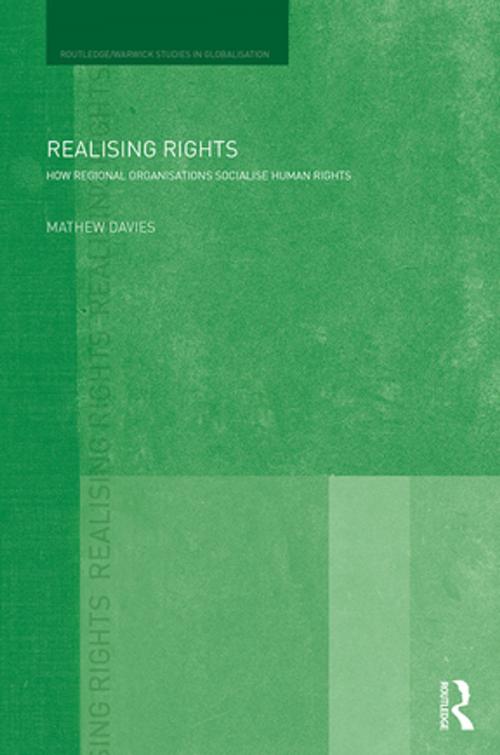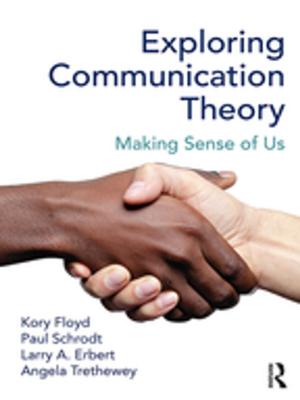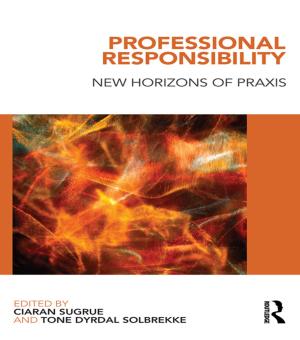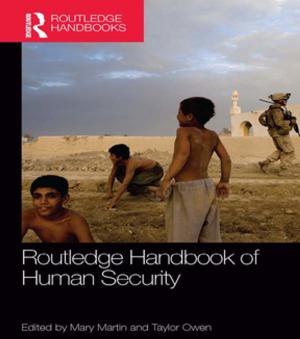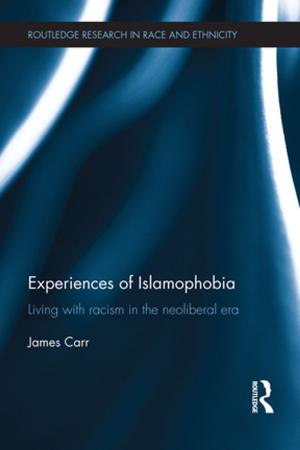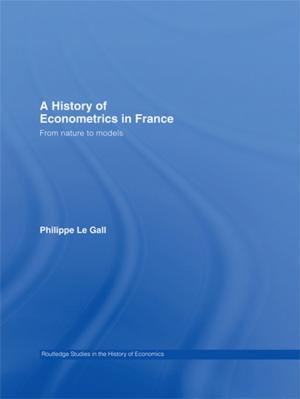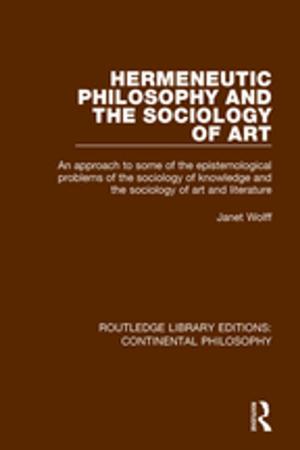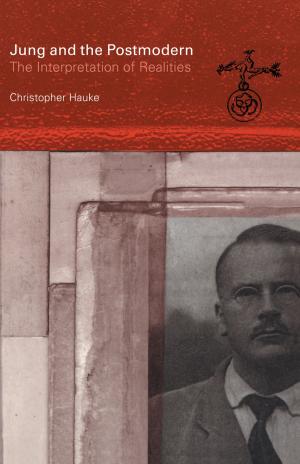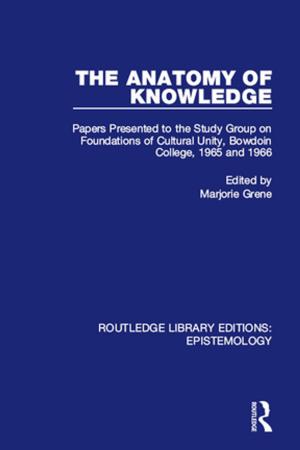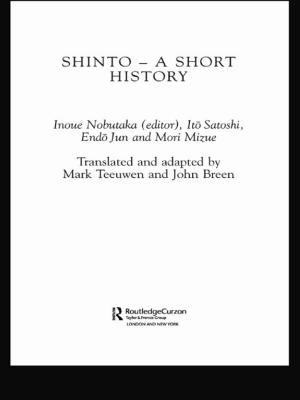Realising Rights
How Regional Organisations Socialise Human Rights
Nonfiction, Social & Cultural Studies, Political Science, International, International Relations, Politics, History & Theory| Author: | Mathew Davies | ISBN: | 9781317631477 |
| Publisher: | Taylor and Francis | Publication: | September 15, 2014 |
| Imprint: | Routledge | Language: | English |
| Author: | Mathew Davies |
| ISBN: | 9781317631477 |
| Publisher: | Taylor and Francis |
| Publication: | September 15, 2014 |
| Imprint: | Routledge |
| Language: | English |
This book presents the hitherto unstudied variety of ways that human rights socialisation is attempted in the context of regional organisations, arguing that existing conceptual accounts of this phenomenon need to be expanded to best explain this diversity.
By placing the study of the European Union’s relationship with Turkey alongside parallel studies of the Association of Southeast Asian Nations engagement with Myanmar, and the Organization of American States history with Panama, this book argues that rights socialisation efforts are far more diverse than previously thought. Alongside the conditionality that dominates the EU experience, and that has received the majority of existing academic attention, this book argues that both the politics of social influence, the strategic manipulation of legitimacy and the politics of debate over the meaning of membership also drive socialisation efforts. This book situates these socialisation efforts along the journey states take when applying to, joining and then maintaining membership of, a regional organisation, and further distinguishes between what conditions are necessary for socialisation to be attempted and what further requirements are needed for that attempt to be successful.
To appreciate the diversity of socialisation politics revealed, this book constructs an inclusive conceptual framework drawing on both rational choice and constructivist theorising and will be of interest to students of Politics and International Relations.
This book presents the hitherto unstudied variety of ways that human rights socialisation is attempted in the context of regional organisations, arguing that existing conceptual accounts of this phenomenon need to be expanded to best explain this diversity.
By placing the study of the European Union’s relationship with Turkey alongside parallel studies of the Association of Southeast Asian Nations engagement with Myanmar, and the Organization of American States history with Panama, this book argues that rights socialisation efforts are far more diverse than previously thought. Alongside the conditionality that dominates the EU experience, and that has received the majority of existing academic attention, this book argues that both the politics of social influence, the strategic manipulation of legitimacy and the politics of debate over the meaning of membership also drive socialisation efforts. This book situates these socialisation efforts along the journey states take when applying to, joining and then maintaining membership of, a regional organisation, and further distinguishes between what conditions are necessary for socialisation to be attempted and what further requirements are needed for that attempt to be successful.
To appreciate the diversity of socialisation politics revealed, this book constructs an inclusive conceptual framework drawing on both rational choice and constructivist theorising and will be of interest to students of Politics and International Relations.
